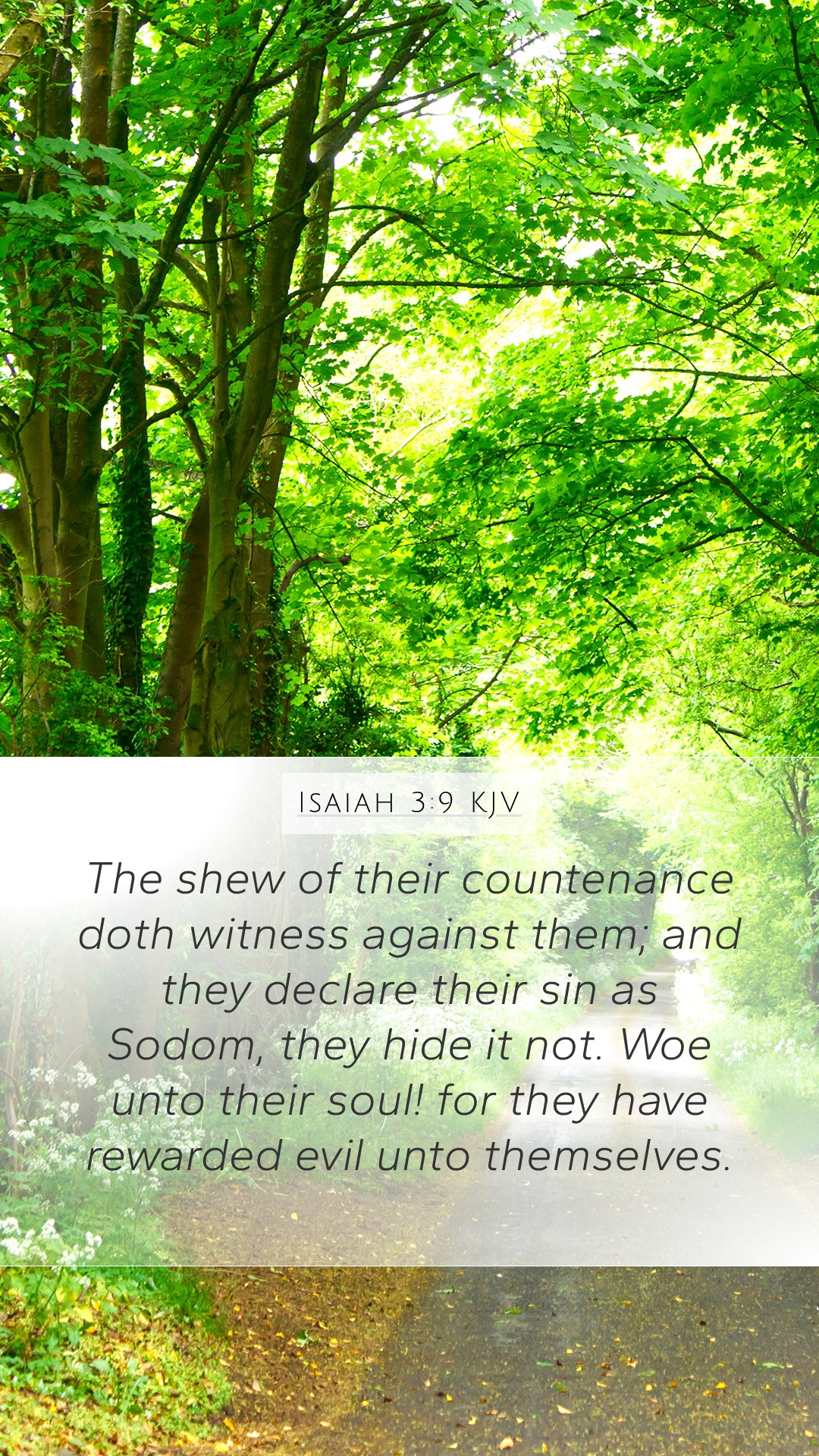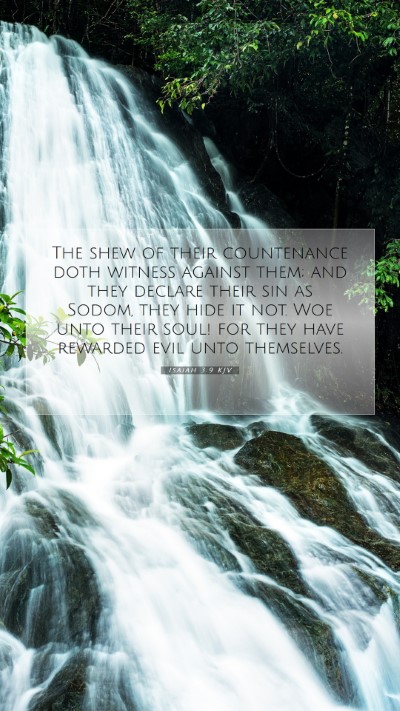Understanding Isaiah 3:9
Isaiah 3:9 states: "The show of their countenance doth witness against them; and they declare their sin as Sodom, they hide it not. Woe unto their soul! for they have rewarded evil unto themselves." This passage serves as a profound commentary on the moral and social decay prevalent in Jerusalem at the time.
Bible Verse Meanings
This verse highlights the public acknowledgment of sins, where individuals do not merely commit wrongdoing but openly display their transgressions. The reference to Sodom suggests extreme moral depravity, equating the sins of the people to that of Sodom and Gomorrah, cities egregiously punished for their sins.
Bible Verse Interpretations
- Matthew Henry notes that the verse captures the essence of the people's brazen attitude towards sin. They wear their iniquities as a badge of honor, demonstrating an utter lack of shame or remorse.
- Albert Barnes emphasizes the social implications of open sinfulness, arguing that when people are unashamed of their sins, they contribute to a community-wide decline in moral values.
- Adam Clarke provides a historical context, pointing out that this was a prophetic warning, foreshadowing the impending judgment that would fall upon the people because of their persistent rebellion against God.
Bible Verse Understanding
Understanding Isaiah 3:9 involves recognizing the significance of public sin. The verse reflects a societal norm where sin is condoned, and evil acts are celebrated rather than concealed. It serves as a crucial reminder of the accountability that comes with such behavior.
Bible Verse Explanations
This scripture places a strong emphasis on personal and communal responsibility. The phrase "woe unto their soul" acts as a poignant warning about the consequences of actively engaging in and displaying sin without fear or remorse. It suggests that such a lifestyle ultimately leads to self-inflicted harm and judgment.
Scripture Analysis
In analyzing this verse, we can draw parallels to other passages where the outcry against sin is evident. The prophetic literature often contains similar calls for repentance and warnings of judgment, making it essential for readers to engage in these texts comprehensively.
Biblical Exegesis
Exegetically, Isaiah 3:9 serves to solidify the role of the prophet as a social commentator and spiritual guide. Through the prophetic voice of Isaiah, God laments the hard-heartedness of His people, calling them to recognize their sinful state and repent before it is too late.
Bible Study Insights
For individuals or bible study groups, this verse offers rich material for exploration. Engaging with Isaiah 3:9 can be transformative, prompting discussions about the modern parallels of societal sin and accountability. Questions might focus on how contemporary culture often mirrors the open defiance portrayed in this scripture.
Related Bible Cross References
- Genesis 19:24-25 - The destruction of Sodom and Gomorrah as a consequence of their sins.
- Jeremiah 6:15 - The call out against a nation that is unashamed of their sin.
- Romans 1:24-32 - A New Testament outlook on the cultural acceptance of sin and its repercussions.
Applying Bible Verses to Daily Life
As you reflect on Isaiah 3:9, consider how this warning applies in your own life and community. The challenge lies in recognizing areas where society might condone sin as acceptable and how you can uphold God’s standards in your daily interactions. Such reflection is crucial for personal development in faith.
Conclusion
The profound implications of Isaiah 3:9 extend beyond its historical context and resonate with current societal issues. This verse serves as a call to introspection—urging believers to examine their lives and communities against the backdrop of God’s expectations. Understanding and acting upon this scripture fosters a deeper relationship with God and aligns one’s life with biblical principles.


